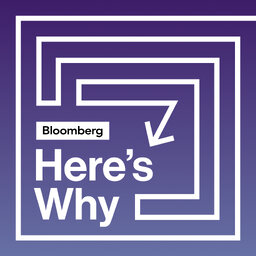GOP House Conflicts and San Francisco in Crisis
How much longer can Kevin McCarthy appease House members and is a government shutdown inevitable? Jonathan Bernstein joins to discuss the latest in DC. Bloomberg's Sarah Green Carmichael joins to talk about Shopify's approach to meetings and whether other corporations should consider how often, and how long, they meet. Opinion's Justin Fox discusses the similarities and differences between Detroit and San Francisco, and Conor Sen talks about northern migration during the summer months. Amy Morris hosts.
In 1 playlist(s)
Bloomberg Opinion
Deeper conversations on the week's most significant developments. Tune in and join in!Social links
Follow podcast
Recent clips

Introducing 'Here's Why' - Complex News Stories Explained
00:30

Airline Mergers and Restaurant Loyalty
35:20

Fossil Fuel Use and Drug Development
35:28
 Bloomberg Opinion
Bloomberg Opinion